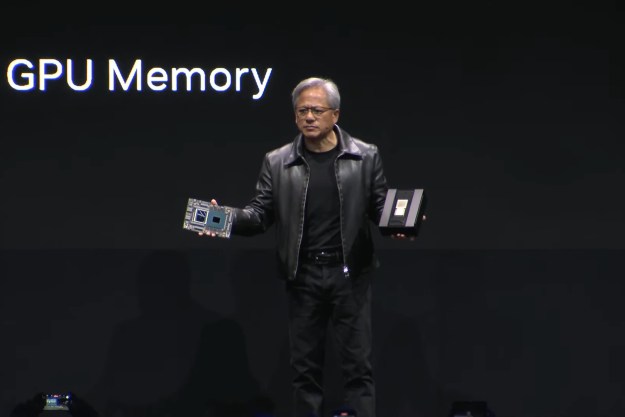
In November 2018, Hyundai announced an investment in an Israeli startup named Allegro.ai that specializes in deep learning-based computer vision. On the surface, it sounded like a standard business deal. Company A invests in company B. That’s great for both sides (hopefully, at least), but it has very few implications for the average consumer. This tie-up is a little bit different. While Hyundai owners won’t notice an immediate change, the partnership promises to allow the South Korean firm to bring more technology in its cars faster than if it had decided to do everything in-house.
Digital Trends talked to Nir Bar-Lev, Allegro.ai’s CEO, to find out more.
Hyundai is huge, it’s one of the largest car companies in the world, so why would it invest in a startup like Allegro.ai instead of developing the technology on its own? Building a car is hard, just ask any of the startups who have tried, struggled, and failed, but developing advanced software is also difficult and time-consuming.

“There aren’t enough people with the right experience and knowledge to do deep learning at a high level. It’s kind of like trying to build a car in the stone age. The infrastructure that companies have at their disposal is somewhere along the lines of what existed 35-40 years ago in a traditional software industry,” Bar-Lev explained. He added that 99 percent of companies do not have the required expertise to work with deep learning. “If you think of the gold rush, everyone ultimately needed jeans and picks and shovels, otherwise they couldn’t mine the gold. It’s the same thing here.”
That’s where Allegro.ai comes in. While Hyundai will develop its own deep learning technology, its researchers will use Allegro.ai’s solutions to better understand how the puzzle pieces come together. “By making these tools commercially available, companies can access them, which means things are going to happen faster,” Bar-Lev predicted.
Teaching a car how to drive is a lot like teaching a teen how to drive in the sense that experience is key
The first (and most often cited) application of deep learning in the automotive world is powering an autonomous car. For it to work, a car needs to understand what it’s doing, what other cars are doing, and the type of environment it’s operating in. And, as Bar-Lev pointed out, driving a car in the United States is a completely different experience than driving in Abu Dhabi, or Guatemala City, or downtown Paris.
Teaching a car how to drive is a lot like teaching a teen how to drive in the sense that experience is key. For a 15-year old, the experience comes by spending hours behind the wheel next to an instructor. For a car, it requires feeding the software a mammoth amount of annotated data that teaches it what trees, trucks, and railroad crossings look like.
Allegro.ai doesn’t deal in data. The companies who want to build self-driving cars need to figure out how to gather it. It simply provides a platform that lets engineers annotate it and feed it to a car more efficiently and at scale. On a second but more lasting level, the same basic technology can be used to teach a car how to recognize who is in the car at any given time and what they are doing.

“If a car is on-demand, it needs to somehow know what’s going on in the cabin. It needs to make sure that no one is littering the cabin, that no one is doing something they’re not supposed to be doing,” explained Bar-Lev. This type of technology is also used in semi-autonomous systems to tell whether the driver is looking at the road ahead, counting crows on power lines, or sleeping.
Finally, deep learning technology can also help automakers build better cars. Robots trained in quality control can identify even the tiniest scratches in the paint, misaligned body panels, or leaks before a car leaves the assembly line. Humans currently do this job. AI-enabled robots could replace them or complement them, depending on the company and the use case it makes for deep learning technology.
“A lot of folks don’t understand the need for deep learning, or why we’re talking about it. To the credit of [Allegro investors] Bosch and Samsung, they really saw where the market is going, and I think Hyundai joining us is a testament of the understanding across the industry,” Bar-Lev concluded.
Editors' Recommendations
- YouTube tells creators to start labeling ‘realistic’ AI content
- Tom Hanks warns of AI-generated ad using his likeness
- Hollywood writers strike ends after agreement on AI and other issues
- Coca-Cola apparently used AI to create a soda ‘from the future’
- AI drone beats pro drone racers at their own game



